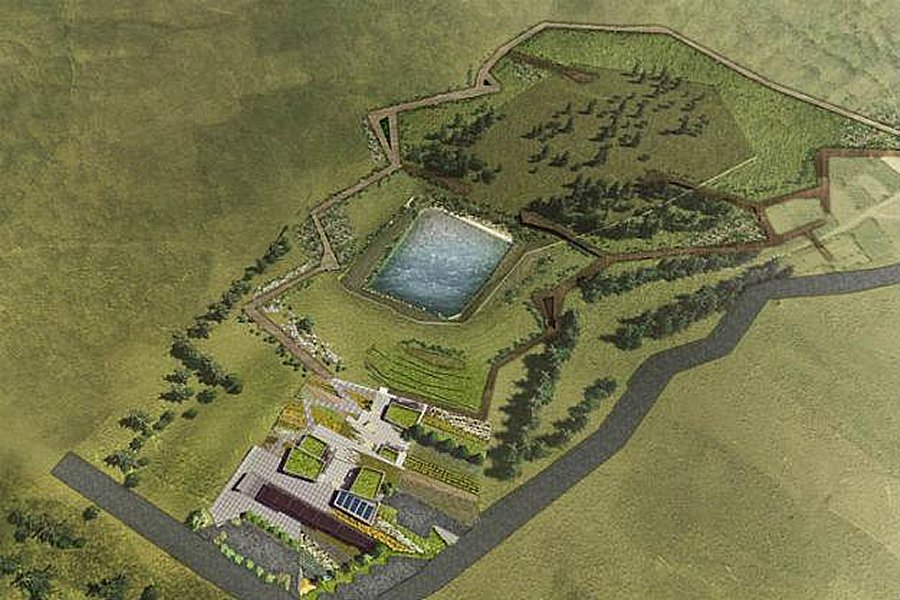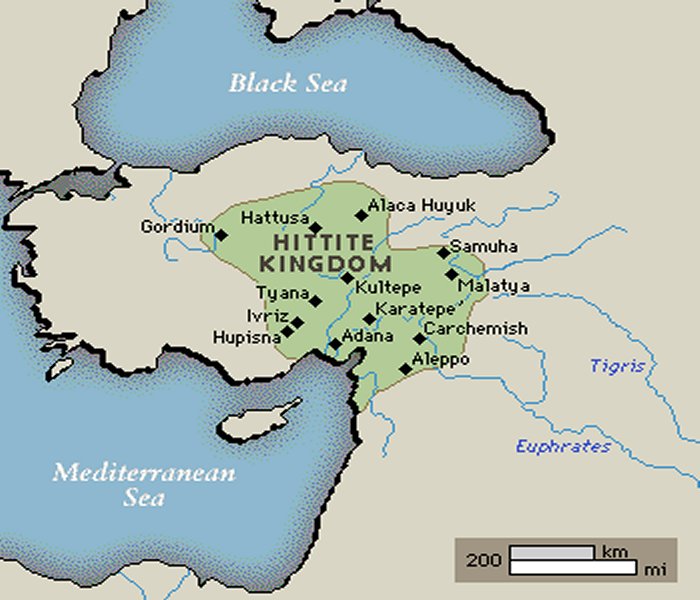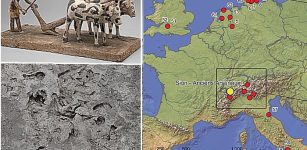“Hittite Forest” That Grew 4,500 Years Ago Will Be Created In Alacahöyük, Turkey
AncientPages.com - Fifteen ancient tree species that grew 4,500 years ago in Alacahöyük, one of the most important centers of the Hittite civilization will be planted in order to create a “Hittite Forest” in the central Anatolian province of Çorum.
Located almost 80 kilometers away from Çorum, home to the capital of Hittite civilization, Hattuşa, and other significant historical sites, the ancient city of Alacahöyük, known as Turkey’s first national excavation site, has been recently undergoing reconstruction work initiated by the General Directorate of State Hydraulic Works (DSİ) to revive the Hittite Dam, which was discovered in 2002 and dubbed the “oldest dam of Anatolia” writes Hurriyet Daily News.

The Hittite Forest, which will be created by planting the tree species that grew in the region 4,500 years ago. Credits: AA photo
Within the scope of the project, which was realized by DSİ and initiated by Ankara University’s Professor Aykut Çınaroğlu, investments will be made in the region.
Çınaroğlu, who has been the head of the excavation work in Alacahöyük for 20 years, said one of the project’s most important parts was the creation of the Hittite Forest, which will be created by planting the tree species that grew in the region 4,500 years ago.

Hittite history is generally divided into two major time periods: the Old Kingdom (1700-1500 BC) and the New Kingdom (1400-1180 BC).
He said Alacahöyük was introduced to the scientific world at the 100th anniversary of the excavations’ start in 2007. He explained the dam structure served the purpose of watering fields and providing potable water during the Hittite era.
Çınaroğlu said his team had identified 15 of all the tree species that existed on the Anatolian land some 4,500 years ago. It is these trees that will be planted in the forest that will surround the dam, which is still active.
Stating that it was the only project of its kind in the world, the professor said, “Hittite Forest exists in nowhere. It will be the first in the world. Fifteen trees of each of the 15 Hittite species will be planted in the forest. There will also be deodar, pine and poplar trees in the forest but they will be called with their Hittite-era names.
The Latin and Turkish names of the trees will also be written.”
The project has been approved by the Culture and Tourism Ministry General Directorate of Cultural Heritage and Museums and will be finished by 2017 by a company that won the tender.
AncientPages.com
source: Hurriyet Daily News




















